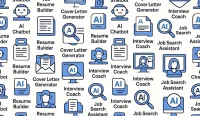The right coach can be a career accelerator with compounding returns. The wrong one drains your bank account and time. Reviews are noisy, testimonials can be manufactured, and even sincere programs may not fit your needs or coaching style. Here’s how to separate signal from noise—and buy outcomes, not hype.
Start With Fit, Not Fame
Referrals from friends are useful, but coaching is personal. Do you respond to tough-love accountability, a calm mentor, or an energetic motivator? Personality fit determines whether you’ll execute the plan. Ask for a short discovery call or sample to judge style and clarity.
Public social proof helps—but treat it critically. Written testimonials without names are common for privacy, yet some are fabricated. Reverse-image-search suspicious photos. Prioritize video testimonials and LinkedIn recommendations you can click into. If you see negative reviews, ask the coach about them. Confident pros discuss misses candidly; defensiveness is a red flag.
The Work Sample That Matters Most
Content is a coach’s audition. Watch videos, trainings, or podcast interviews. Can they think on their feet, diagnose problems, and teach specifics? Blogs alone are easy to copy; live or recorded teaching shows method. If they have no content, request a mini-audit outline—what they would examine first and why.
Why Recruiting Experience Often Wins
Coaches with high-volume recruiting/HR backgrounds tend to outperform because they’ve seen thousands of edge cases. They know how hiring decisions are actually made and can spot subtle interview or résumé failure points. But recruiting experience isn’t sufficient. The best coaches translate observations into precise instruction: what to change, why it matters, and how to measure progress.
Ask for their methodology in one page: the steps, artifacts (résumé, LinkedIn, outreach scripts), milestones, and expected outcomes. Vague inspiration isn’t a system.
Beware the Therapy Trap (When You Need Tactics)
Many job seekers want practical guidance: better positioning, sharper outreach, targeted interview prep. If sessions feel like general life coaching with little homework, templates, or metrics, you’ll feel good but stall. Established coaches usually run programs, not disconnected sessions, so you build momentum across modules: positioning → materials → pipeline → interviewing → negotiation.
The Résumé Writer Money Pit (And How To Avoid It)
Plenty of résumé writers use AI tools—the same ones you can use. Draft your own using a clear formula (results, impact, metrics), then invest in expert feedback to refine positioning, keywords, and structure. Pay for diagnosis and strategy, not keystrokes. If you do hire a writer, require: a discovery intake, an ATS keyword map, quantified bullets, two revision rounds, and a LinkedIn refresh aligned to your target roles.
One Powerful Question That Exposes Real Expertise
Ask: “Tell me about a client who wasn’t a fit—and why.”
Every credible coach has mismatches. Honest answers reveal boundaries, ethics, and pattern recognition. Follow with: “Walk me through a tough case you turned around. What changed week by week?” Look for concrete levers (ICP shift, headline rewrite, referral outreach cadence, mock interview feedback loop) and measurable results.
What A Strong Program Includes
Clear positioning: a tight value proposition and target role criteria. Evidence: quantified résumé and LinkedIn aligned to target ATS keywords. Pipeline engine: referral-first outreach plan, scripts, and a weekly activity target. Interview system: repeatable framework, mock interviews with detailed debriefs. Negotiation plan: anchor ranges, tradeoffs, and total-comp checklists. Metrics: weekly dashboards (applications, referrals, screens, onsites, offers).
What A Strong Program Includes
A strong career program isn’t luck — it’s structure. Clear positioning, measurable progress, and repeatable systems drive results. From keyword-aligned résumés to referral pipelines, mock interviews, and negotiation frameworks — every part compounds your odds. Track your metrics, refine weekly, and treat your job search like a product launch.
Post Jobs & Build Strong Hiring Programs →You should leave each session with assignments and a deadline. Progress is observable.
Pricing, Access, and Expectations
Digital courses: hundreds; coaching programs: thousands; executive programs can hit five figures. What matters is expected ROI and support scope: live calls, async feedback, turnaround times, and duration. If funds are tight, start with free resources and a short targeted review (résumé/LinkedIn/interview audit) to unlock immediate gains.
Red Flags To Avoid
Guaranteed offers/interviews (no one controls hiring). No sample content or vague methodology. All mindset, no mechanics (no scripts, frameworks, or metrics). Upsell chains before results. Outsourced résumé mills without discovery or quant. Inability to discuss negative reviews or failed fits calmly.
Frequently Asked Questions
How do I verify results?
Ask for anonymized before/after materials and time-to-offer metrics. Cross-check video testimonials and LinkedIn recommendations.
What should my first month look like?
Week 1 positioning; Week 2 materials; Week 3 pipeline live; Week 4 mock interviews; weekly metrics review.
Is a résumé writer worth it?
Only if bundled with discovery, quant, ATS mapping, and LinkedIn alignment. Otherwise draft with AI and pay for expert edits.
What if I can’t afford coaching now?
Use free trainings, refine materials with AI, and run a referral-first outreach cadence. Upgrade to targeted reviews when possible.




